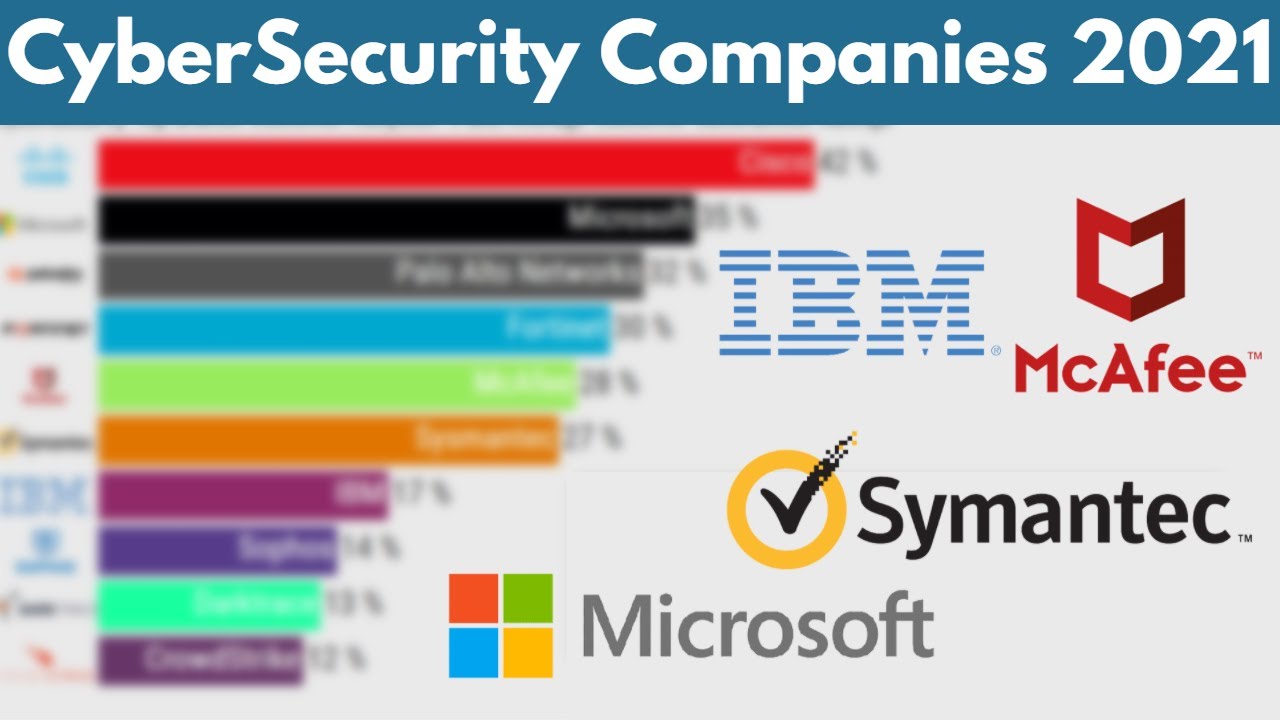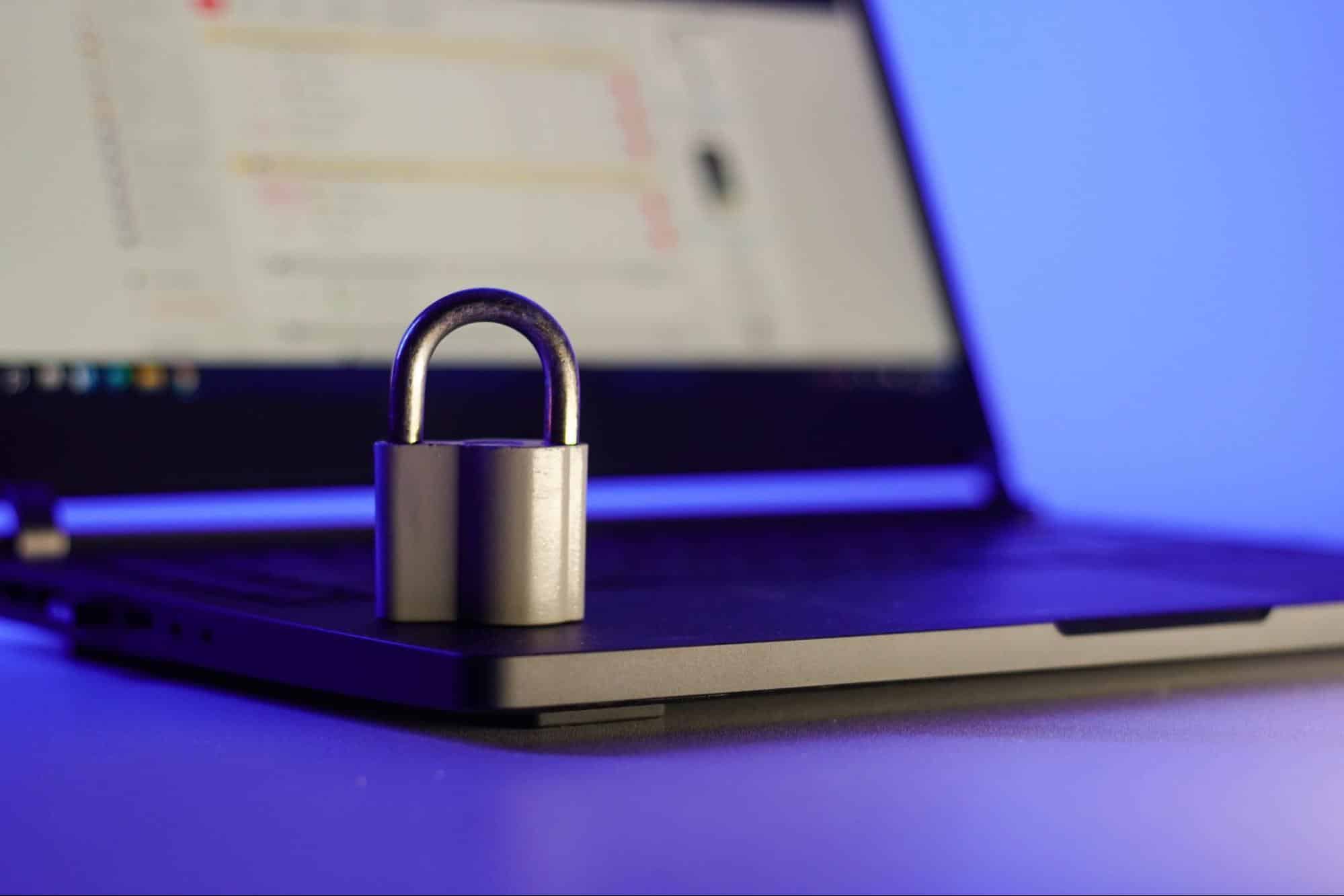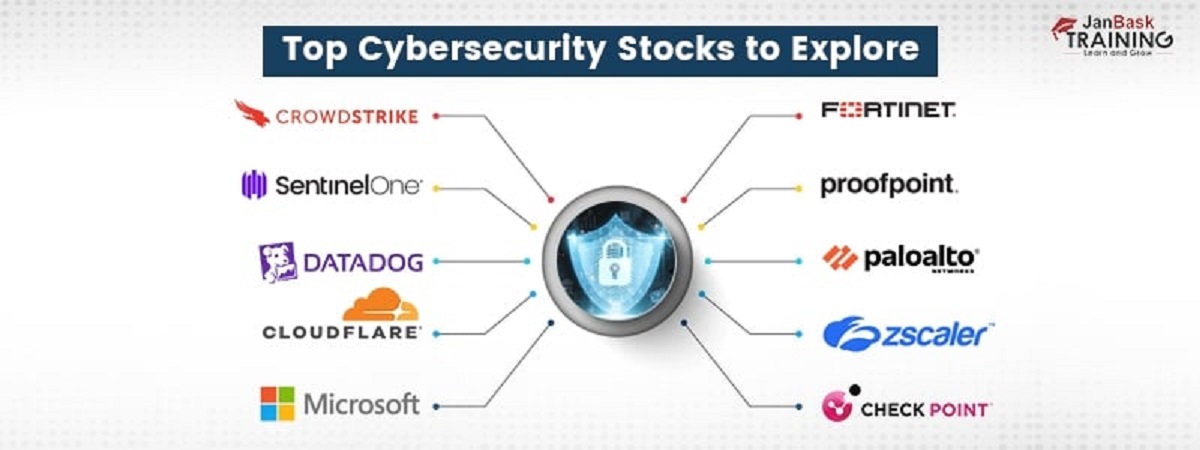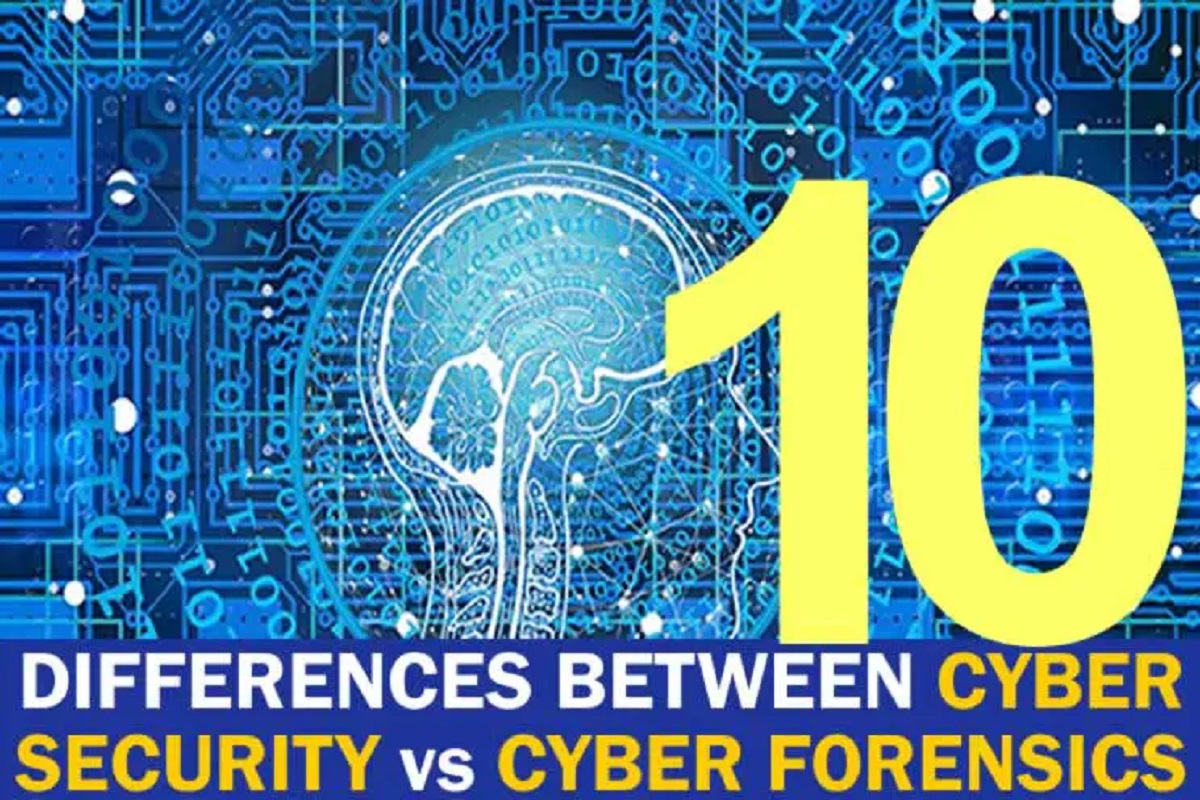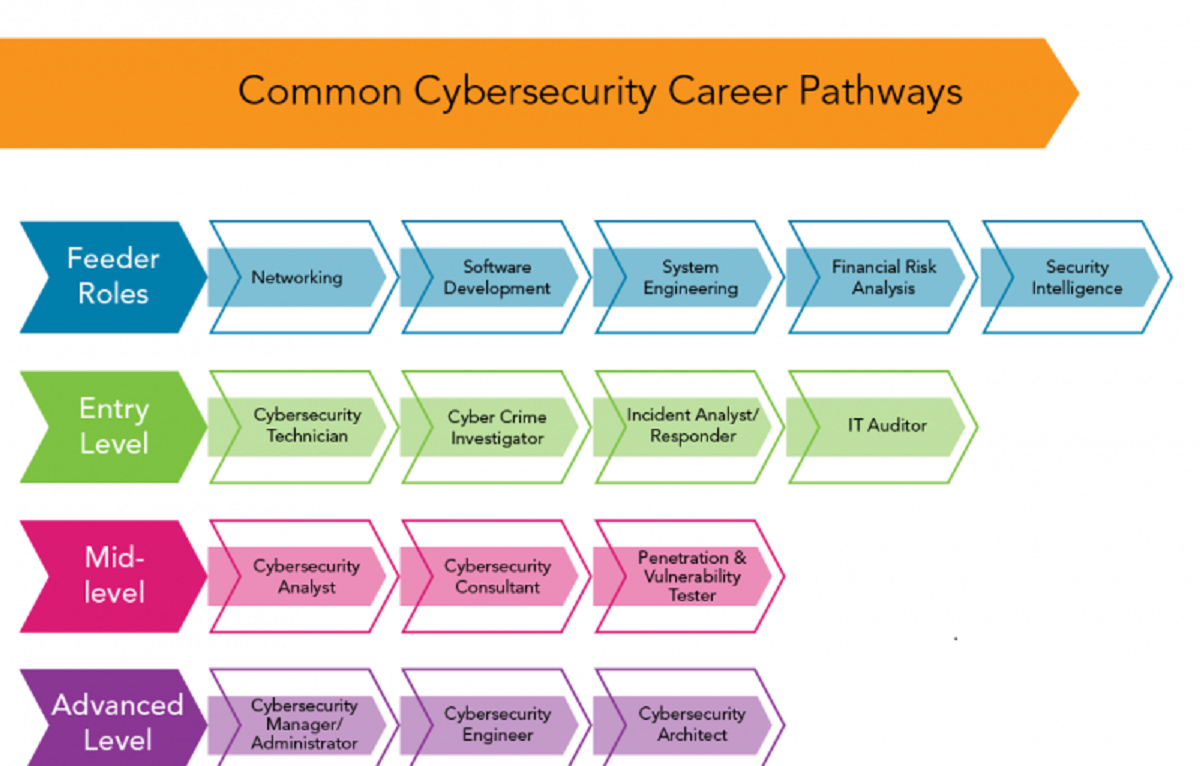Introduction
Welcome to the world of cybersecurity consulting, a rapidly growing field that plays a crucial role in safeguarding organizations from cyber threats. As our reliance on technology continues to increase, so does the need for experts who can protect sensitive data and ensure the secure operation of digital systems.
A cybersecurity consultant is a professional who helps organizations assess their current security measures, identifies vulnerabilities, and implements strategies to mitigate risks. These consultants possess a deep understanding of cybersecurity principles, industry best practices, and emerging threats. They work closely with clients to develop comprehensive security strategies tailored to their specific needs.
The importance of cybersecurity consulting cannot be understated. With cyber attacks becoming more frequent and sophisticated, businesses across all industries are seeking the expertise of these consultants to stay ahead of potential threats. By proactively addressing vulnerabilities, organizations can minimize the risk of data breaches, financial losses, and damage to their reputation.
In this article, we will explore the role and responsibilities of a cybersecurity consultant, the skills and qualifications required to enter this field, and the steps involved in becoming a successful consultant. We will also delve into the certifications available for cybersecurity professionals, the average salary and job outlook, and the benefits and challenges of working in this dynamic industry. Additionally, we will discuss the tools and technologies that consultants utilize to perform their tasks effectively.
Whether you are considering a career in cybersecurity consulting or wish to gain a better understanding of this field, let’s dive in and explore the exciting world of cybersecurity consulting!
Role and Responsibilities of a Cybersecurity Consultant
A cybersecurity consultant plays a critical role in helping organizations protect their digital assets and sensitive information from cyber threats. They possess specialized knowledge and expertise in cybersecurity principles, risk assessment, and threat mitigation. Here are some of the key responsibilities of a cybersecurity consultant:
- Assessing Security Risks: One of the primary responsibilities of a cybersecurity consultant is to evaluate an organization’s existing security measures and identify potential vulnerabilities. They conduct thorough assessments, including penetration testing, vulnerability scanning, and risk analysis, to determine the level of risk an organization faces.
- Developing Security Strategies: Based on the findings from security assessments, cybersecurity consultants develop comprehensive security strategies tailored to the specific needs of the organization. They create and implement policies, procedures, and controls to enhance the overall security posture of the organization.
- Implementing Security Measures: Cybersecurity consultants work closely with clients to implement security measures based on industry best practices and compliance requirements. This includes configuring firewalls, implementing intrusion detection and prevention systems, and setting up secure access controls.
- Performing Security Audits: To ensure ongoing compliance and effectiveness of security measures, consultants conduct regular security audits. They review systems, networks, and processes to identify any gaps or weaknesses that need to be addressed. They also assist in maintaining regulatory compliance, such as HIPAA or GDPR.
- Providing Training and Education: A cybersecurity consultant helps organizations build a culture of security by providing training and education to employees. They create awareness about cyber threats, educate employees on best practices for email security, password protection, and safe browsing habits, and conduct simulated phishing exercises to test employee awareness.
Cybersecurity consultants are also expected to stay up-to-date with the latest trends, threats, and technologies in the cybersecurity field. They continuously expand their knowledge and skills through professional development, attending conferences, and pursuing industry certifications.
Overall, the role of a cybersecurity consultant is multi-faceted and requires a combination of technical expertise, analytical skills, and strong communication abilities. They are instrumental in helping organizations defend against cyber threats and ensure the secure operation of their digital systems.
Skills and Qualifications Needed to Become a Cybersecurity Consultant
Becoming a cybersecurity consultant requires a unique set of skills and qualifications due to the technical nature and high stakes involved in the field. Here are the key skills and qualifications required to pursue a successful career as a cybersecurity consultant:
- Technical Knowledge: A strong foundation in computer science, networking, and information security is essential. A cybersecurity consultant should have a deep understanding of operating systems, network protocols, cryptography, and security frameworks.
- Threat Assessment and Risk Management: The ability to assess and analyze potential threats and risks is crucial for a cybersecurity consultant. They should be able to identify vulnerabilities, evaluate the impact of potential attacks, and develop risk management strategies.
- Knowledge of Security Tools and Technologies: Familiarity with various security tools and technologies is vital. These may include vulnerability scanners, intrusion detection and prevention systems (IDPS), firewalls, antivirus software, and security information and event management (SIEM) systems.
- Problem-Solving and Analytical Skills: Cybersecurity consultants often encounter complex security challenges. They need strong problem-solving skills and the ability to think critically and analytically to devise innovative solutions.
- Communication and Collaboration: Effective communication skills are essential for a cybersecurity consultant. They must be able to clearly and concisely communicate technical concepts to non-technical stakeholders. Collaboration skills are also important as consultants often work as part of a team.
- Ethical Hacking and Penetration Testing: Knowledge of ethical hacking and penetration testing is highly valuable. Having the ability to perform simulated attacks and identify vulnerabilities helps consultants gain a thorough understanding of potential threats and how to mitigate them.
- Industry Certifications: Obtaining relevant industry certifications is highly recommended. Certifications such as Certified Information Systems Security Professional (CISSP), Certified Ethical Hacker (CEH), and Certified Information Systems Auditor (CISA) demonstrate expertise and credibility in the field.
While academic qualifications are important, hands-on experience is equally valuable in the cybersecurity field. It is beneficial to gain practical experience through internships, entry-level positions, or through participation in bug bounty programs and capture-the-flag competitions.
Becoming a cybersecurity consultant requires a continuous commitment to learning and adapting to the ever-changing threat landscape. It is a role that demands technical expertise, critical thinking skills, and a passion for staying ahead of cyber threats.
Steps to Becoming a Cybersecurity Consultant
Becoming a cybersecurity consultant requires a combination of education, practical experience, and continuous learning. If you’re interested in pursuing a career in this field, here are the steps you can follow to become a cybersecurity consultant:
- Earn a Degree: Start by obtaining a bachelor’s degree in a related field such as computer science, information security, or cybersecurity. Some positions may require a master’s degree for more advanced roles.
- Develop Technical Skills: Enhance your technical skills by gaining practical experience and knowledge in areas such as networking, operating systems, programming languages, and information security.
- Gain Practical Experience: Seek opportunities to gain hands-on experience through internships, part-time jobs, or entry-level roles in the cybersecurity field. This will help you develop a solid foundation and apply theoretical knowledge in real-world scenarios.
- Obtain Industry Certifications: Consider obtaining industry-recognized certifications such as Certified Information Systems Security Professional (CISSP), Certified Ethical Hacker (CEH), or Certified Information Systems Auditor (CISA). These certifications validate your expertise and enhance your credibility as a cybersecurity consultant.
- Develop Soft Skills: Alongside technical skills, focus on developing strong communication, problem-solving, and analytical skills. These skills are essential for effective collaboration, consulting, and client relationship management.
- Build a Professional Network: Network with professionals in the cybersecurity industry by attending industry events, joining relevant associations, and participating in online communities. Building a strong professional network can provide valuable connections and opportunities in the field.
- Stay Updated: Cybersecurity is a rapidly evolving field, so it is essential to stay updated with the latest trends, threats, and technologies. Continuously engage in professional development activities, such as attending conferences, participating in workshops, and pursuing advanced certifications.
- Apply for Cybersecurity Consultant Positions: Once you have acquired the necessary knowledge, skills, and certifications, start applying for cybersecurity consultant positions. Tailor your resume and cover letter to highlight your relevant experience and demonstrate your ability to assess security risks and develop effective strategies.
- Continuously Learn and Grow: Cybersecurity is a field that requires a commitment to lifelong learning. Stay current with emerging threats and technologies, and continuously expand your skills and knowledge through self-study, online courses, and advanced certifications.
Following these steps will help you embark on a successful journey towards becoming a cybersecurity consultant. Remember, continuous learning, practical experience, and a passion for cybersecurity are key to thriving in this dynamic and challenging field.
Industry Certifications for Cybersecurity Consultants
In the cybersecurity field, industry certifications are highly valuable as they validate your expertise, demonstrate your commitment to professional development, and enhance your credibility as a cybersecurity consultant. Here are some of the top industry certifications that can help you excel in your career:
- Certified Information Systems Security Professional (CISSP): Offered by (ISC)², the CISSP certification is one of the most recognized and prestigious certifications in the cybersecurity industry. It covers key domains such as security and risk management, asset security, security architecture and engineering, communications and network security, and more.
- Certified Ethical Hacker (CEH): The CEH certification, provided by the EC-Council, focuses on ethical hacking techniques and methodologies. It equips cybersecurity professionals with the knowledge and skills to identify vulnerabilities and implement appropriate countermeasures to protect systems and networks.
- GIAC Security Essentials (GSEC): The GSEC certification, offered by the Global Information Assurance Certification (GIAC), validates the candidate’s understanding of essential cybersecurity concepts, principles, and technologies. It covers topics such as network security, access controls, cryptography, and incident response.
- Certified Information Security Manager (CISM): The CISM certification, provided by ISACA, is designed for cybersecurity professionals responsible for managing, designing, and assessing an enterprise’s information security program. It covers topics such as information risk management, governance and management of IT, and incident management.
- Certified Information Systems Auditor (CISA): The CISA certification, also offered by ISACA, validates the skills and knowledge required to assess and audit information systems and ensure their security, compliance, and reliability. It covers areas such as information system acquisition, development, and implementation, and information system operations and business resilience.
- CompTIA Security+: The CompTIA Security+ certification is a vendor-neutral certification that covers core security concepts, network security, compliance and operational security, threats and vulnerabilities, and more. It is widely recognized and provides a solid foundation for cybersecurity professionals.
These are just a few examples of the many industry certifications available for cybersecurity consultants. Depending on your career goals and areas of specialization, you may consider obtaining additional certifications such as Certified Cloud Security Professional (CCSP), Offensive Security Certified Professional (OSCP), or Certified Information Privacy Professional (CIPP).
It’s important to note that certifications alone do not guarantee success in the field. Practical experience, continuous learning, and staying up-to-date with the latest developments in the cybersecurity industry are equally important for a successful career as a cybersecurity consultant.
Average Salary and Job Outlook for Cybersecurity Consultants
Cybersecurity consultants play a vital role in protecting organizations from cyber threats, and the demand for their expertise continues to grow. As organizations recognize the importance of cybersecurity, the job outlook and earning potential for cybersecurity consultants are quite promising.
The average salary for cybersecurity consultants can vary depending on factors such as experience, education level, industry, and geographic location. According to Payscale, as of [current year], the average annual salary for cybersecurity consultants ranges from [salary range] per year. However, experienced consultants or those working in high-demand industries can earn significantly higher salaries.
The job outlook for cybersecurity consultants is exceptionally optimistic. The Bureau of Labor Statistics projects a 31% growth in information security analyst jobs from [current year] to [future year], which is significantly faster than the average for all occupations. This high growth rate is attributed to the continuous rise in cyber threats and the increasing focus on protecting sensitive information and digital systems.
Organizations across industries are recognizing the critical need for cybersecurity consultants to ensure their operations remain secure and compliant. The healthcare, finance, and technology sectors are particularly active in hiring cybersecurity consultants due to the sensitive nature of the data they handle.
The demand for cybersecurity consultants is further driven by regulatory requirements and concerns over data breaches. Organizations are increasingly investing in cybersecurity measures to protect themselves from potential legal and financial consequences resulting from breaches.
Additionally, the scarcity of skilled cybersecurity professionals contributes to the positive job outlook for consultants. As the complexity and frequency of cyber threats increase, the need for qualified consultants with up-to-date knowledge and expertise becomes even more significant.
Cybersecurity consultants can find employment opportunities in various sectors such as healthcare, government, finance, technology, and consulting firms. They may work as independent consultants, be part of internal cybersecurity teams within organizations, or work for specialized cybersecurity consulting firms.
Furthermore, advancements in technology and the adoption of cloud computing, Internet of Things (IoT), and artificial intelligence continue to create new challenges and opportunities for cybersecurity consultants. As these technologies evolve, so does the need for consultants who can navigate and secure these increasingly complex digital landscapes.
In summary, the average salary for cybersecurity consultants is competitive, and the job outlook is highly favorable. The increasing demand for their expertise, coupled with the continuous growth in cyber threats, ensures a positive and promising career path for those interested in pursuing a career as a cybersecurity consultant.
Benefits and Challenges of Being a Cybersecurity Consultant
Being a cybersecurity consultant offers numerous benefits and presents unique challenges. Understanding both the advantages and difficulties of this profession is crucial for anyone considering a career in cybersecurity consulting. Let’s explore the benefits and challenges of being a cybersecurity consultant:
Benefits:
- High Demand: The demand for cybersecurity consultants is continuously growing, creating ample job opportunities and career advancement prospects. As organizations prioritize cybersecurity, consultants become essential assets to safeguard sensitive data and protect against cyber threats.
- Marketability: Cybersecurity consultants possess highly sought-after skills. Their expertise in assessing risks, developing security strategies, and implementing effective solutions makes them marketable professionals in a wide range of industries.
- Continuous Learning: The field of cybersecurity is dynamic and ever-evolving. As a consultant, you must stay up-to-date with the latest security trends, emerging threats, and technological advancements. This ensures that you are constantly learning and expanding your knowledge base.
- Intellectual Stimulation: Cybersecurity consultants are often faced with complex challenges that require critical thinking and problem-solving skills. This intellectual stimulation keeps the job interesting and allows consultants to constantly challenge themselves.
- Competitive Salaries: Due to the high demand for cybersecurity consultants, salaries in this field tend to be competitive. Experienced consultants with relevant certifications and specialized expertise can command higher pay rates.
- Positive Impact: Cybersecurity consultants play a crucial role in protecting individuals and organizations from cyber threats. By securing digital systems and safeguarding sensitive information, consultants contribute to the overall safety and trustworthiness of the digital landscape.
Challenges:
- Constant Learning: Staying at the forefront of cybersecurity requires continuous learning and keeping up with evolving threats and technologies. This demands a commitment to ongoing professional development and self-improvement.
- High Responsibility: Cybersecurity consultants bear significant responsibility in ensuring the security and privacy of sensitive data. The consequences of a security breach can be severe, so meticulous attention to detail and thorough risk assessment is crucial.
- Pressure and Stress: The responsibility of protecting valuable assets and mitigating threats can create high-pressure situations. Cybersecurity consultants must work well under stress and maintain composure to make critical decisions quickly.
- Constantly Changing Landscape: The cybersecurity landscape is continuously evolving, with new threats emerging and technologies advancing. Consultants must adapt to these changes and stay ahead of cybercriminals, requiring a commitment to ongoing professional development.
- Client Expectations: Meeting client expectations can be a challenge. Each organization may have unique security requirements, and it’s the consultant’s responsibility to develop tailored solutions that meet these needs within given constraints.
Despite the challenges, the benefits of being a cybersecurity consultant, such as high demand, continuous learning, positive impact, and competitive salaries, make it an appealing and rewarding career choice for individuals passionate about protecting digital systems and combating cyber threats.
Tools and Technologies Used by Cybersecurity Consultants
Cybersecurity consultants rely on a variety of tools and technologies to assess risks, identify vulnerabilities, and protect organizations from cyber threats. These tools are designed to enhance security, monitor networks, detect attacks, and respond to incidents effectively. Here are some of the key tools and technologies commonly utilized by cybersecurity consultants:
- Vulnerability Scanners: Vulnerability scanning tools assess systems and networks for potential weaknesses or vulnerabilities. They identify outdated software, misconfigurations, or unpatched systems that could be exploited by attackers.
- Intrusion Detection and Prevention Systems (IDPS): IDPS tools monitor network traffic for any signs of unauthorized access or malicious activity. They can detect and prevent potential attacks, notify administrators in real-time, and provide reports on suspicious activities.
- Firewalls: Firewalls are essential security devices that filter and monitor network traffic based on predetermined security rules. They control access to networks and systems, preventing unauthorized access and protecting against potential cyber threats.
- Security Information and Event Management (SIEM) Systems: SIEM systems collect and analyze security event logs and network traffic data from various sources. They provide real-time monitoring, threat detection, and response capabilities by aggregating and correlating log data to identify potential security incidents.
- Penetration Testing Tools: Penetration testing tools simulate real-world attacks to identify vulnerabilities in systems, networks, and applications. These tools may include network scanners, network analyzers, password cracking tools, and exploit frameworks.
- Encryption Tools: Encryption tools are used to protect sensitive data by transforming it into unreadable ciphertext that can only be decrypted with the appropriate cryptographic keys. They help ensure data confidentiality, integrity, and authenticity.
- Authentication and Access Control Systems: These tools validate the identity of users and control their access to systems and data. They may include multi-factor authentication solutions, access control lists, and privilege management tools.
- Security Incident Response Platforms: Incident response platforms help streamline and automate the process of managing and responding to security incidents. They enable teams to efficiently track, investigate, and remediate incidents in a coordinated manner.
- Forensic Tools: Forensic tools assist in collecting and analyzing digital evidence in the aftermath of a security incident. These tools ensure proper preservation, analysis, and documentation of digital evidence for legal and investigative purposes.
It’s important to note that the specific tools and technologies used by cybersecurity consultants may vary depending on the scope of the project, the needs of the organization, and the consultant’s expertise. As the cybersecurity landscape evolves, new tools and technologies continue to emerge, providing consultants with more advanced capabilities to combat ever-evolving cyber threats.
Successful cybersecurity consultants remain knowledgeable about the latest tools and technologies and adapt their toolset to meet the specific needs and requirements of their clients or organizations they serve.
Typical Work Environment for Cybersecurity Consultants
Cybersecurity consultants work in a dynamic and fast-paced environment that revolves around protecting organizations from cyber threats and ensuring the security of their digital systems. While specifics can vary, there are several common elements that define the typical work environment for cybersecurity consultants:
Office Setting: Many cybersecurity consultants work in office environments, either as part of an internal cybersecurity team within an organization or as employees of specialized cybersecurity consulting firms. The office setting provides a controlled and collaborative environment for consultants to work on assessments, develop strategies, and collaborate with colleagues.
Remote Work: Remote work is also common for cybersecurity consultants, especially in situations where they are providing services to clients located in different geographic locations. Remote work allows consultants to work from anywhere with an internet connection, providing flexibility and the ability to meet client needs across different time zones.
Client Sites: Cybersecurity consultants often visit client sites to conduct security assessments, perform audits, or provide on-site support. This allows consultants to gain a better understanding of the client’s infrastructure, collaborate with their team, and ensure that security measures are implemented effectively.
Collaboration and Teamwork: Collaboration is crucial in the field of cybersecurity. Consultants work closely with other cybersecurity professionals, IT teams, and stakeholders to assess risks, develop strategies, and implement security measures. Effective communication and teamwork are essential for achieving optimal results.
Engagement with Clients: Cybersecurity consultants engage directly with clients, including IT teams, management, and executives, to understand their security needs, assess risks, and propose appropriate solutions. Building strong client relationships is key to gaining trust and ensuring effective collaboration throughout the duration of the engagement.
Ongoing Learning and Growth: The field of cybersecurity is constantly evolving, with new threats, technologies, and best practices emerging regularly. As a result, cybersecurity consultants must engage in continuous learning to stay updated on the latest trends, enhance their skills, and adapt to the evolving threat landscape.
Flexible Schedule: Depending on the specific engagement and client requirements, cybersecurity consultants often enjoy a degree of flexibility in their work schedules. This flexibility allows consultants to allocate time for research, professional development activities, and maintaining a healthy work-life balance.
High Pressure and Urgency: The nature of cybersecurity consulting involves dealing with high-stakes situations and sensitive data. Consultants often face urgent deadlines and must make critical decisions quickly to respond to security incidents and mitigate potential risks. This environment requires the ability to work well under pressure and remain calm and focused in complex and challenging situations.
Confidentiality and Trust: Cybersecurity consultants handle sensitive information and have access to the inner workings of organizations. Maintaining confidentiality and earning the trust of clients are critical aspects of the work. Consultants must prioritize ethical conduct, professionalism, and a strong commitment to client confidentiality.
In summary, the work environment for cybersecurity consultants combines a mix of office and remote work, collaboration with clients and team members, ongoing learning, and the need to operate effectively under pressure. Working in this environment demands adaptability, a passion for continuous learning, strong communication skills, and a dedication to maintaining cybersecurity integrity and client trust.
Conclusion
Cybersecurity consulting is a dynamic and critical field that plays a crucial role in protecting organizations from cyber threats. As technology continues to advance, the demand for skilled cybersecurity consultants continues to grow. These professionals assess risks, develop security strategies, and implement measures to safeguard digital systems and sensitive data.
Throughout this article, we have explored various aspects of the cybersecurity consulting profession. We discussed the role and responsibilities of a cybersecurity consultant, the skills and qualifications required for success, the steps to becoming a consultant, and industry certifications that enhance credibility. We also examined the average salary, job outlook, benefits, and challenges of being a cybersecurity consultant. Additionally, we explored the tools and technologies used by cybersecurity consultants and the typical work environment they operate in.
It is important to note that cybersecurity consulting is not just a job; it is a continuous learning journey. The field evolves rapidly, and staying updated with the latest threats, technologies, and best practices is crucial for success. Continuous professional development, obtaining relevant certifications, and building a strong network are essential for growth and advancement within the field.
As organizations’ reliance on technology increases, the need for cybersecurity consultants will only become more pronounced. These professionals help businesses navigate the ever-growing landscape of cyber threats and safeguard their operations. It’s a rewarding and fulfilling career choice for individuals passionate about protecting valuable assets, mitigating risks, and making a positive impact in the digital realm.
In conclusion, cybersecurity consulting offers a challenging yet highly rewarding career path for individuals with the right skills, qualifications, and mindset. By continuously learning, adapting, and staying ahead of cyber threats, cybersecurity consultants play a critical role in ensuring the security and integrity of digital systems and protecting organizations from malicious attacks.











